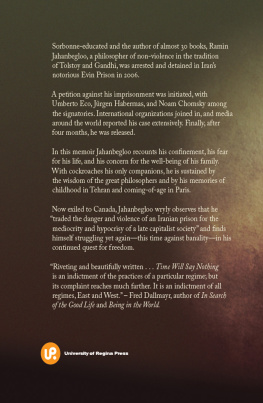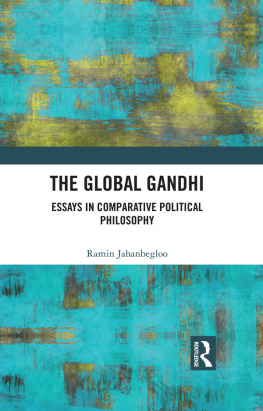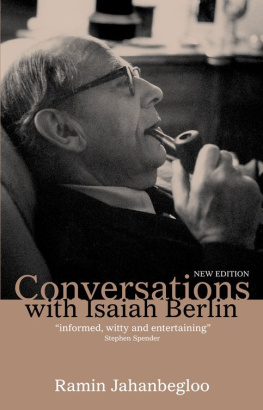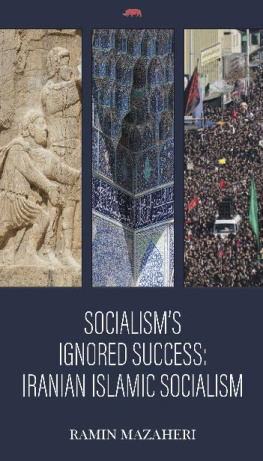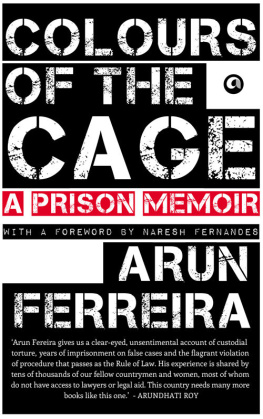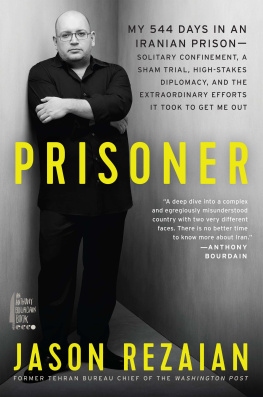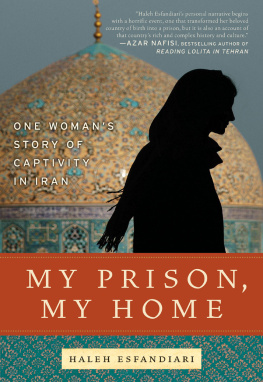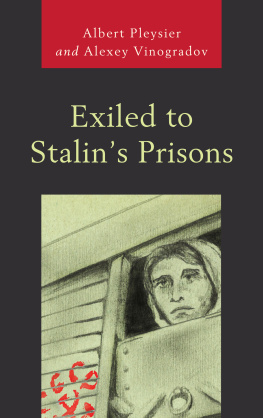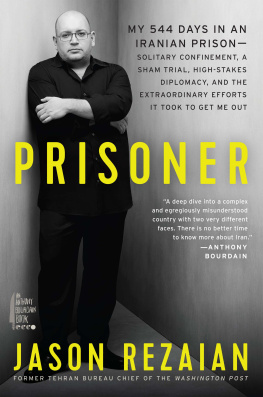MEMOIR / PHILOSOPHY
Placed in solitary confinement in Evin Prison, Ramin Jahanbegloo was interrogated almost daily for long hours while blindfolded.
At first he had no idea of why he was imprisonedand gradually it emerged that he was falsely accused of provoking a velvet revolution and spying for Irans enemies.
Jahanbegloo has written a remarkable and sensitive memoir of what it is like to be in solitary confinement, hearing the screams and cries of inmates, never knowing whether one is about to be tortured or killed. He reflects on his early life in Iran, his studies in Paris, his separation from his wife and infant daughter, his dedication to philosophy, his commitment to non-violence, and the need to hope when everything seemed hopeless. Jahanbegloos integrity, deep convictions, and honesty about his own fallibility shine through in his insightful and passionate memoir.RICHARD J. BERNSTEIN, NEW SCHOOL FOR SOCIAL RESEARCH
TIME WILL SAY NOTHING

2014 Ramin Jahanbegloo
All rights reserved. No part of this work covered by the copyrights hereon may be reproduced or used in any form or by any meansgraphic, electronic, or mechanicalwithout the prior written permission of the publisher. Any request for photocopying, recording, taping or placement in information storage and retrieval systems of any sort shall be directed in writing to Access Copyright.
Printed and bound in Canada at Friesens.
Library and Archives Canada Cataloguing in Publication Cataloguing in Publication (CIP) data available at the Library and Archives Canada web site: www.collectionscanada.gc.ca and at www.uofrpress.ca/publications/Time-Will-Say-Nothing

University of Regina Press
Saskatchewan, Canada, S4S 0A2
tel: (306) 585-4758 fax: (306) 585-4699
web: www.uofrpress.ca
10 9 8 7 6 5 4 3 2 1
The University of Regina Press acknowledges the financial support of the following for its publishing program and activities: a Creative Saskatchewan Production Grant, and the Creative Industry Growth and Sustainability program, both made possible through funding provided to the Saskatchewan Arts Board by the Government of Saskatchewan through the Ministry of Parks, Culture, and Sport; the Government of Canada through the Canada Book Fund; and the Canada Council for the Arts.

To my mother, Khoji, who has been my consolation in sorrow and my strength in weakness
Time will say nothing but I told you so,
Time only knows the price we have to pay;
If I could tell you I would let you know.
W.H. AUDEN
Contents
OUR DESTINIES ARE UNIQUE, EACH IN ITS OWN WAY. Each of us is a creator, shaping and reshaping ourselves to become what we are, as life ultimately means taking ones destiny and imbuing it with meaning. That is what makes destiny a moral dilemma. In Hindu philosophy, which incorporates a belief in reincarnation, destiny is both passed to us at birth and shaped by us in our new life, out of our free will. We all wear the chains we forge in life, but while some of us try to break our chains and set ourselves free, others stay in fetters. As Goethe says, There is no predicament that we cannot ennoble either by doing or enduring. There are moments in life when we must re-engage with truth, especially in the face of horror. Perhaps this engagement is an attempt to awaken memories of the past, moments of joy and pain. Extreme situations and intense suffering help us to piece together fragments of memory. Dreams and nightmares are tinged with painful secrets, losses, betrayals, but also with kindness and love.
A man awakens in a prison cell with no memory of his past. He thinks of dying as the best thing that could happen to him. And yet he continues to live under the shadow of his destiny, because he has the chance to walk away from his past and create the future he always wanted. This is the story of my struggle with destiny.
THE HEAVY STEEL DOOR SWUNG CLOSED ON THE cell behind me. In the total silence that descended, I took off my blindfold and found myself trapped within four cold walls. I looked around, my eyes adjusting, as if emerging from a dream, as if waking into a nightmare. The cell was small, perhaps three by three metres. A high ceiling and old concrete. All green. An intense yellow light from a single bulb high above. There were two blankets on the floor next to a small vent set in the wall. Somehow I could hear the horror in the walls, the voices of previous prisoners whispering a painful welcome. I could see the traces they had left on the walls, despite the green paint that was supposed to cover the signs of their distress. I had no way of knowing whether they had survived the time they spent here. I had no way of knowing whether I would. Even if I lived, would I be able to survive solitary confinement without going insane? So many questions were crowding my mind. I was isolated and disoriented. I heard my own breathing and then, as if from a great distance, the sound of a man moaning. It was coming through the vent. Later, I found out that he was so injured that he could barely move. He had to be helped by the guards to go to the bathroom. I realized that he must have been tortured. Would I be tortured too?
I was afraid. The cell had the look, the sound, the desolate feel of Carl Theodor Dreyers film Vampyr, and I had been thrown into it without any warning. Why? How had I gotten here? I lay down on the blankets on the hard floor and the images and sounds of the past hour came rushing back, furious and absurd.
It was the morning of April 27, 2006, and I was at Tehrans Mehrabad Airport to catch a flight to Brussels, where I was to attend a conference. I had checked in my luggage and gone through security when I was approached by four men. One of them called me by my first name. Ramin, he said, could you follow us?
I looked them over quickly. They were all wearing ordinary suits with no ties and had beards. Two of them were particularly ugly and rough, reminding me of unkempt wrestlers. The one who had spoken looked the most boorish, and he stood impatiently, waiting for me to comply.
Ill miss my plane, I said.
We just want to ask you a few questions.
People around us were watching, but nobody moved. I realized that I had no choice but to go with them.
They led me to the lower, arrivals, level, and soon we were outside by the shuttle buses. One of them told me, as we got into a waiting car, that my luggage would be safeit was the last thing on my mind, but his words were still strangely reassuring. Two of the men got in the front as driver and passenger, and the other two climbed in the back with me between them. They pushed my head down and the car took off toward another part of the airport, to a garage where another car was waiting.
Here, with fewer witnesses around, the men were more aggressive, pulling me out of the first car and throwing me into the second. They pushed my head down again and this time one of them covered it with his jacket, which smelled of rotten onions. It had a hole in it, so that I could see out of one of the side windows. The car sped away from the airport and I soon saw that we were getting on the highway, heading for northern Tehran. Then I heard one of them say into a walkie-talkie: We have the package. The package is arriving.
I realized for the first time that my life was in danger. I knew that in the early years of the Islamic regime many people had been taken away and executed without notice or trial. Their mutilated bodies were found in the suburbs, and the police pretended to look for the assassins. Their abductors were similar to the men surrounding meintelligence officers who picked up intellectuals and activists and killed them on the spot. Two days earlier I had returned to Iran, which apparently had not changed. In a place that a lifetime of studying philosophy cannot explain, no amount of thinking could help me. Instinct prevailed and I panicked. An agitated voice kept escaping me, though I was not aware of speaking. It echoed, bouncing around the car, falling back into my throat and escaping again. Where are you taking me? Where are you taking me? And the simple, hollow reply, Shut up! over and over again.
Next page
